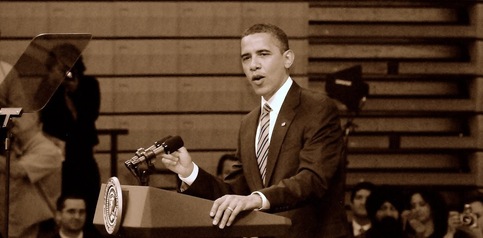A favorite media term for elected officials who have become less dogmatic and partisan during their time in office. While this theoretically applies to politicians of both parties, it’s most often applied to Republicans who move left.
Consider Arizona Gov. Jan Brewer. The Republican chief executive in February 2014 vetoed legislation that would have allowed Arizona businesses to deny services to gay people on grounds of religious beliefs. The high-profile move led CNN’s John King to ask, “Is Brewer part of a GOP evolution?”
“Tolerance is an issue for Republicans among key voting blocs, especially independents and younger voters,” King said. “So some GOP strategists were quick to applaud Brewer for a move they say shows Republicans are listening and adapting to changing times – and changing views on gay rights.”
In the early 2000s, another Arizona Republican officeholder – Sen. John McCain – was often said to have “evolved” once he took on more Democratic-leaning positions. After losing to George W. Bush in the brutal 2000 Republican presidential primaries, McCain frequently fought against his own party’s stances. After he tacked sharply to the right to win re-election, McCain re-emerged as a bipartisan dealmaker in 2013, leading NBC News’ “First Read” to proclaim: “John McCain’s political identity has once again evolved.”
Sometimes, though, elected officials use “evolve” simply as a way to stall.
President Barack Obama did just that in his sometimes-tortured deliberations about whether to support same-sex marriage. As much of the nation moved toward acceptance of same-sex nuptials, the president insisted that he was “evolving” on the issue. Some progressive Democrats grew frustrated with what they called his dithering; Massachusetts Senate candidate Elizabeth Warren -- who won her race -- suggested in March 2012 that Obama “evolve already.” He seemed to heed that advice, and became the first sitting president to back same-sex marriage.
